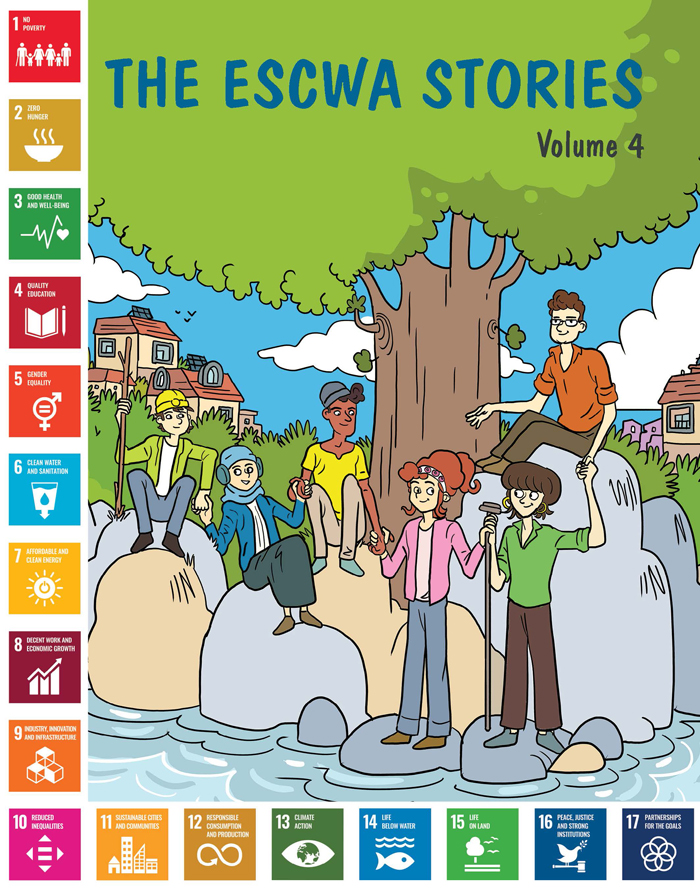
ESCWA Publication: E/ESCWA/CL1.CCS/2023/Policy brief.5
Country: Lebanese Republic, State of Palestine
Publication Type: Policy briefs
Cluster: Climate Change and Natural Resource Sustainability
Focus Area: Natural resource sustainability
Initiatives: Enhancing resilience and sustainability of agriculture, Promoting renewable energy investments, Promoting food and water security
SDGs: Goal 3: Good Health and Well-Being, Goal 6: Clean Water and Sanitation, Goal 7: Affordable and Clean Energy, Goal 15: Life On Land
Keywords: Telecommunication services, Food security, Food shortage, Water supply, Electric power, Fuels, Basic services, Food preparation, Sanitation services, Medical equipment, Agricultural production, Displaced persons, Land degradation, Field crops, Olives, Territories occupied by israel, Lebanon, Food loss, Health care delivery, Food and nutrition, War on gaza
War on Gaza: weaponizing access to water, energy and food
December 2023
The present policy brief examines the devastating impact of the war on Gaza on the water, food and energy sectors across the Gaza Strip, the West Bank and southern Lebanon, highlighting the importance of safeguarding access to essential services in accordance with international humanitarian law and refraining from using them as tools of war. The ongoing conflict in Gaza has exacerbated an already dire humanitarian situation, compounded by 16 years of blockade and recurring military escalations. Since the outbreak of the war, essential services have been severely disrupted by deliberate attacks on civilian infrastructure, specifically agriculture, energy, water and sanitation systems, coupled with a ban by Israel on the entry of essential goods, including food, drinking water and fuel. This has resulted in a dire humanitarian crisis and widespread suffering. Gaza residents are forced to rely on unsafe water sources, face soaring food prices and shortages, and endure the effects of fuel and energy scarcity, impacting multiple industries and services.
In parallel, the war's consequences have triggered unprecedented levels of violence in the West Bank, resulting in displacement and the devastation of agricultural lands. Similarly, escalating tensions along the southern Lebanese border have resulted in the destruction of agricultural lands, natural areas, and water and energy infrastructure. To avoid further loss of life and human suffering, an extended humanitarian ceasefire in Gaza, with unimpeded and safe access to humanitarian aid and aid workers, is needed to ensure the provision of food, water, medicine and fuel. Subsequently, early recovery efforts should recognize the intricate relationship between water, energy and food, so as to contribute to simultaneous advancements in food security and nutrition, livelihoods, health, and water and energy access, thus paving the way for inclusive and sustainable development. Any meaningful development efforts must begin by ending the Israeli occupation and restoring the Palestinian people’s sovereignty over their natural resources, thus enabling them to invest in energy, water and agricultural infrastructure and regain control of the movement of people and goods.
Related content
Natural resource sustainability
,
The present policy brief examines the devastating impact of the war on Gaza on the water, food and energy sectors across the Gaza Strip, the West Bank and southern Lebanon, highlighting the importance of safeguarding access to essential services in accordance with international humanitarian law and refraining from using them as tools of war. The ongoing conflict in Gaza has exacerbated an already dire humanitarian situation, compounded by 16 years of blockade and recurring military escalations. Since the outbreak of the war, essential services have been severely disrupted by deliberate attacks on civilian infrastructure, specifically agriculture, energy, water and sanitation systems, coupled with a ban by Israel on the entry of essential goods, including food, drinking water and fuel. This has resulted in a dire humanitarian crisis and widespread suffering. Gaza residents are forced to rely on unsafe water sources, face soaring food prices and shortages, and endure the effects of fuel and energy scarcity, impacting multiple industries and services.
In parallel, the war's consequences have triggered unprecedented levels of violence in the West Bank, resulting in displacement and the devastation of agricultural lands. Similarly, escalating tensions along the southern Lebanese border have resulted in the destruction of agricultural lands, natural areas, and water and energy infrastructure. To avoid further loss of life and human suffering, an extended humanitarian ceasefire in Gaza, with unimpeded and safe access to humanitarian aid and aid workers, is needed to ensure the provision of food, water, medicine and fuel. Subsequently, early recovery efforts should recognize the intricate relationship between water, energy and food, so as to contribute to simultaneous advancements in food security and nutrition, livelihoods, health, and water and energy access, thus paving the way for inclusive and sustainable development. Any meaningful development efforts must begin by ending the Israeli occupation and restoring the Palestinian people’s sovereignty over their natural resources, thus enabling them to invest in energy, water and agricultural infrastructure and regain control of the movement of people and goods.



